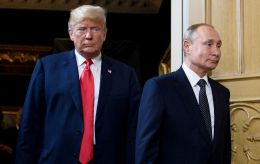Taming Putin: Can Trump and Xi Jinping accelerate end of war in Ukraine?
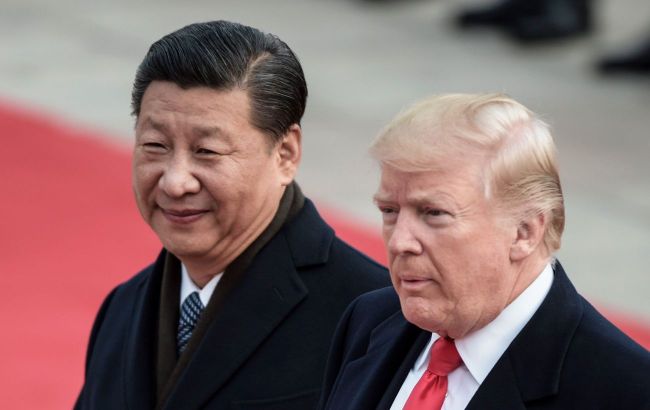 Photo: Donald Trump asks Xi Jinping to help end Russia's war against Ukraine (Getty Images)
Photo: Donald Trump asks Xi Jinping to help end Russia's war against Ukraine (Getty Images)
US President Donald Trump has acknowledged Kyiv’s readiness for a “deal” to end the Russia-Ukraine war, but it takes two to tango. He is now signaling to China, urging joint efforts to persuade Vladimir Putin to reach a peaceful resolution. Notably, Putin stated today that he is open to dialogue with the new US administration.
What Trump’s statements mean, and whether he and Xi Jinping will be able to put pressure on Putin to speed up the end of the war - read in the material by RBC-Ukraine.
Contents
- Does Trump want China’s help?
- Trump's China policy and the Ukraine issue
- Will Xi Jinping pressure Putin?
Does Trump want China’s help?
During yesterday's World Economic Forum in Davos, Trump was asked whether he could achieve peace in Ukraine within a year. Well, you’re going to have to ask Russia. Ukraine is ready to make a deal,” he replied.
He no longer makes bold promises to end the war in 24 hours. Instead, his team, led by special envoy Keith Kellogg, aims to end the war within 100 days. According to Trump’s strategy, a phone call with Putin should be one of the first steps. However, that initial contact has yet to take place.
If a peace process is underway, it is not as fast as Trump expected. Having spoken with Chinese President Xi Jinping before his inauguration, he now looks to him for support.
"Hopefully, China can help us stop the war with, in particular, Russia-Ukraine. And they have a great deal of power over that situation, and we’ll work with them. And I mentioned that during our phone conversation with President Xi, and hopefully, we could work together and get that stopped," he said in Davos.
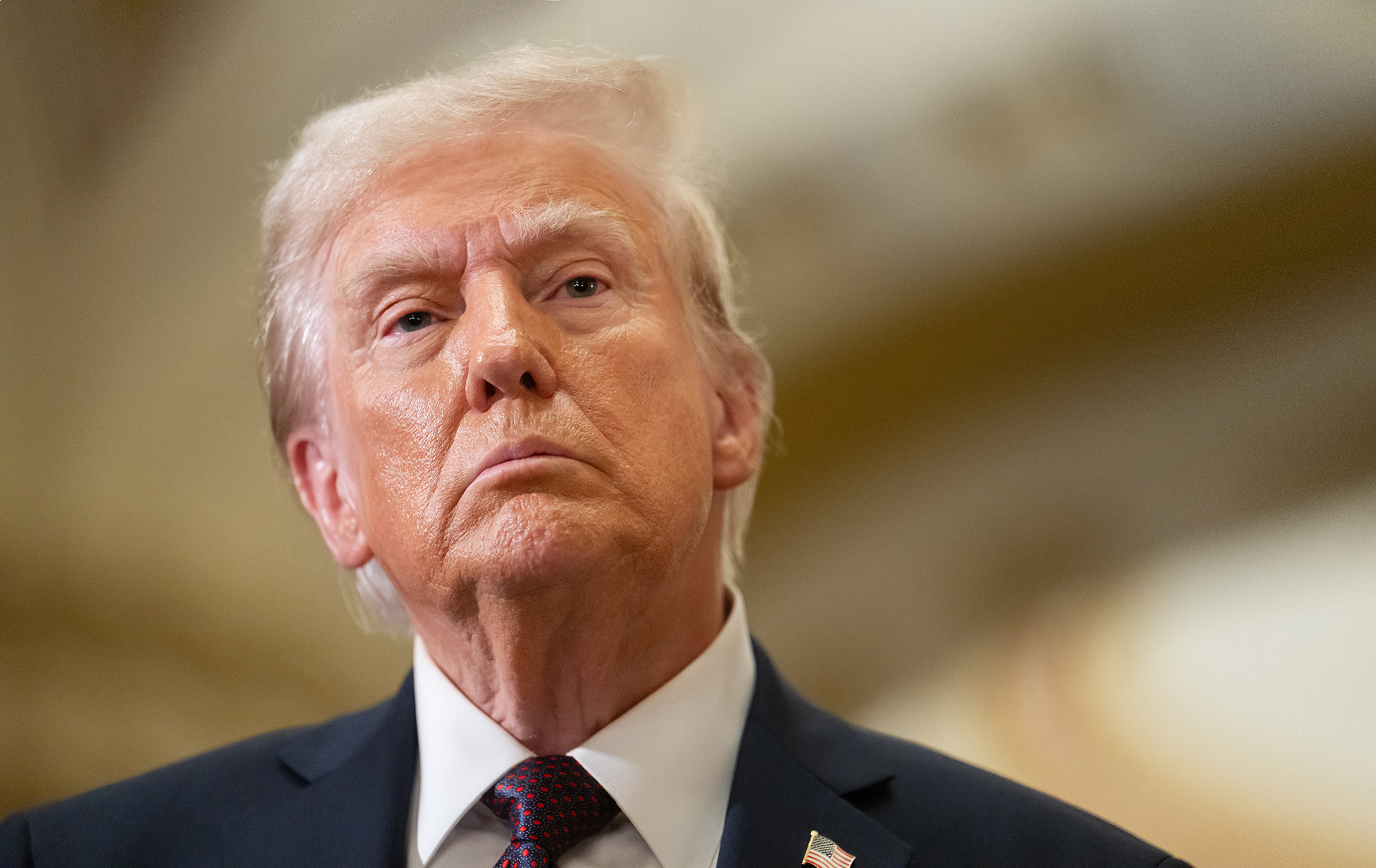
Photo: Donald Trump is counting on China's help to end the war in Ukraine (Getty Images)
President of Ukraine Volodymyr Zelenskyy also talks about China's possible role as a peacekeeper, despite previously criticizing Beijing’s two-year-old peace proposals as destructive for advocating a frozen conflict without guarantees. He also noted that China’s support for Russian exports only prolongs the war.
In an interview with Bloomberg, Zelenskyy stated he is trying to convince China to leverage its influence on Russia, though communication with Chinese President Xi Jinping has been sparse. The only phone call took place in the spring of 2023.
"He can push Putin for peace, President Trump is the strongest — and Xi Jinping. I think there’s no other ally who can really do it. His economy, Putin, depends very much on China," Zelenskyy emphasized.
According to Mykhailo Podolyak, an advisor to the Ukrainian Presidential Office, Russia cannot withstand a pro-Ukrainian alliance if China shifts its position. He noted that Putin looks at Xi as a boss and only informal support from Beijing allows the Kremlin dictator to remain a foreign policy player.
While China officially claims neutrality and advocates for peace talks, it continues to strengthen economic ties with Russia and refrains from condemning its aggression against Ukraine. Responding to Trump’s call for action, Chinese Foreign Ministry spokesperson Mao Ning reiterated Beijing’s willingness to facilitate negotiations while maintaining contact with all parties.
Trump’s appeal suggests his efforts alone may not be enough to force Putin to negotiate an end to the war. Other Western politicians have also made statements about China's possible role. However, their expectations, as well as Ukraine's, may be overstated, said Volodymyr Fesenko, head of the Penta Center for Applied Political Studies.
“From my conversations with Chinese diplomats, I know they find such calls somewhat irritating. They usually respond by saying that China supports peace but cannot force Putin to end the war. Of course, there’s some hypocrisy here. While the war creates problems, China benefits from Russia’s growing dependence on it and the weakening of the West,” Fesenko told RBC-Ukraine.
Trump's China policy and the Ukraine issue
Trump’s second term is starting well for China. He is refraining from high tariffs, signaling that there could be good relations between the two countries, and has expressed interest in visiting Beijing. Additionally, he recently granted a 75-day extension to TikTok and hinted at working on an agreement that would allow the media platform to operate in the US.
This suggests that, at least for now, Trump is willing to engage in talks with China, which is good news for Beijing. The stakes are high for China, as a trade war in the "eye for an eye" format, similar to the one during Trump’s first term, could hit at the most unpleasant time, when the Chinese economy is experiencing a slowdown.
During a phone conversation on January 17, Xi Jinping urged President Trump to adopt a new starting point in their relationship. However, in China, there are no illusions, and officials are calculating how to use the current thaw in relations to negotiate with Trump.
One of Trump’s first decisions was an executive order to review the economic relations of the USA. The situation in trade with China could be part of this. The findings of the review will determine whether the US imposes tariffs. The entire process could take several months, giving China time to build bridges with the new administration or to negotiate a preemptive deal to avoid more severe sanctions.
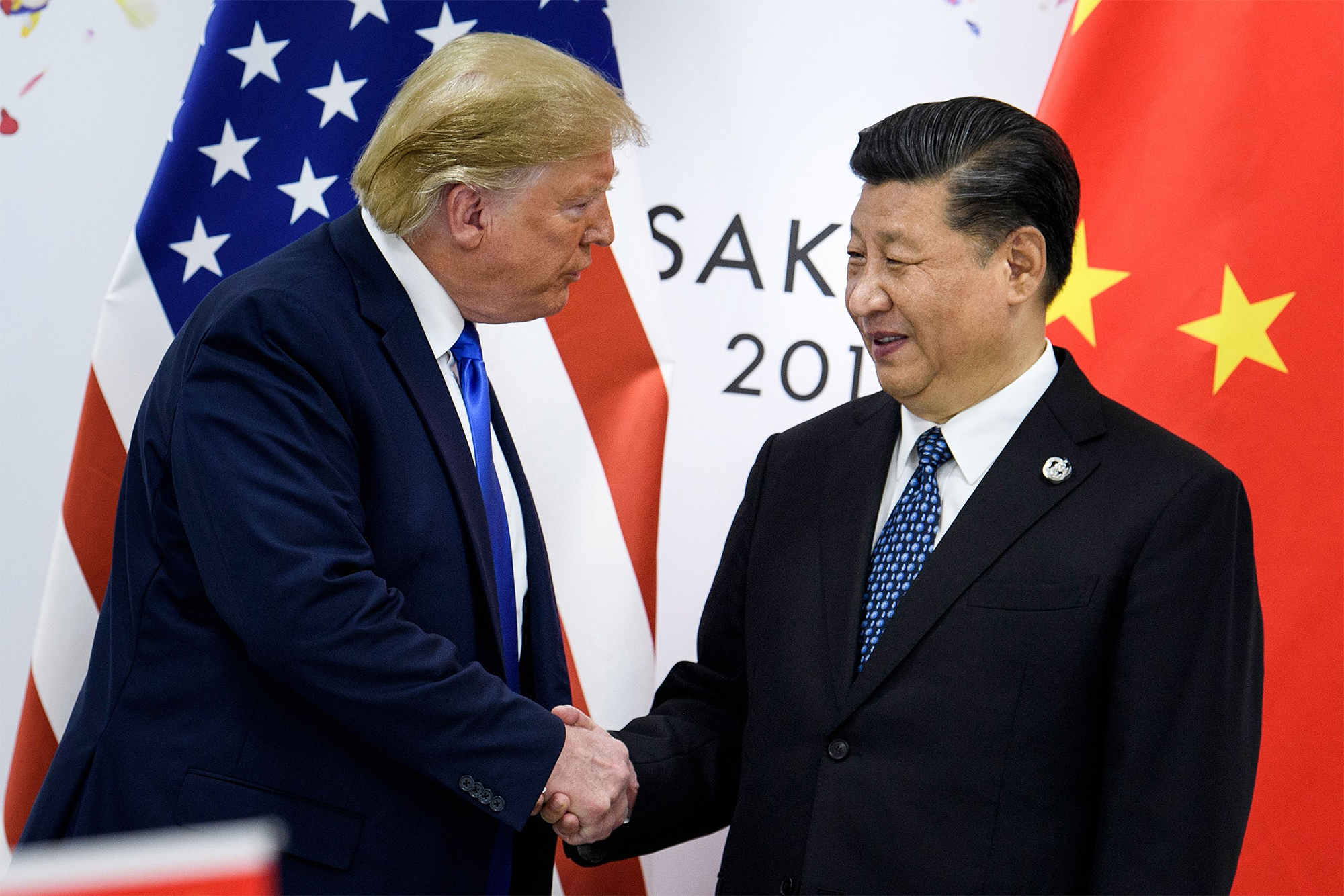
Photo: Donald Trump and Xi Jinping on the verge of a possible new starting point in relations (Getty Images)
"China has realized Trump can be negotiated with, but he is a different, new Trump – what we committed to last time may not satisfy his new desires. This time, instead of being “coerced” into a tit-for-tat trade war by Trump, Beijing may do better to smile, stay calm, and start talking with him," said Shanghai-based international relations analyst Shen Dingli, quoted by CNN.
Tariffs of 10% on imports could be introduced as early as February in response to what Trump calls China’s role in the drug crisis due to fentanyl flows. However, this is far from the 60% tariffs he threatened before the elections. To calm Trump, China may, for example, expand American companies' access to its market and take action against the export of chemical precursors used in fentanyl production.
However, there is a limit to how much China can bend to Trump. ," Xi Jinping said after his conversation with Trump last week, that the main thing is to respect each other's core interests, referring to the situation surrounding Taiwan.
In an interview with Fox News, Trump said he would prefer not to use tariffs against China, but called them a huge advantage, not fully abandoning his previous threats. Olexandr Kraiev, the expert from the Foreign Policy Council Ukrainian Prism, emphasizes that nothing has changed in the relationship between the two countries - mutual threats remain.
"Despite Trump calling Xi a good friend with whom they can achieve much, the desire for a trade war and confrontation will not go away. And if he’s not willing to exclude sanctions, it seems to me that the animosity between them might intensify," Kraiev told RBC-Ukraine.
Any agreements will be made amidst competition for technological and military dominance, struggles over regional interests in Asia, etc. Additionally, efforts to end the Russia-Ukraine war may become a bargaining chip in US-China negotiations, writes CNN.
Volodymyr Fesenko does not rule out that this issue will be a topic of bilateral contact if Trump and Xi Jinping enter into talks on trade and political relations. However, it is unlikely that the Ukrainian issue will be central.
"There is no hint of that yet. But if, by chance, the parties begin negotiating not about the distribution of the world, but about spheres of influence and finding balances, or some broad political agreement, then possibly there will be agreements on Ukraine. But for now, that's an idealistic scenario," the political scientist added.
Will Xi Jinping pressure Putin?
Over the last two and a half months, Trump and Xi Jinping have discussed Russia's war against Ukraine several times. The January 17 conversation was the only one officially announced, but sources of Nikkei Asia claim that exchanges of views occurred much more frequently.
For instance, when Trump met with Ukrainian President Volodymyr Zelenskyy and French President Emmanuel Macron in Paris on December 7, 2024, Trump attempted to reach out to the Chinese side, a source revealed.
After that meeting, Trump took to his social media platform Truth Social to publicly call on China to intervene. "If it keeps going, it can turn into something much bigger, and far worse. I know Vladimir well. This is his time to act. China can help. The World is waiting!" he wrote.
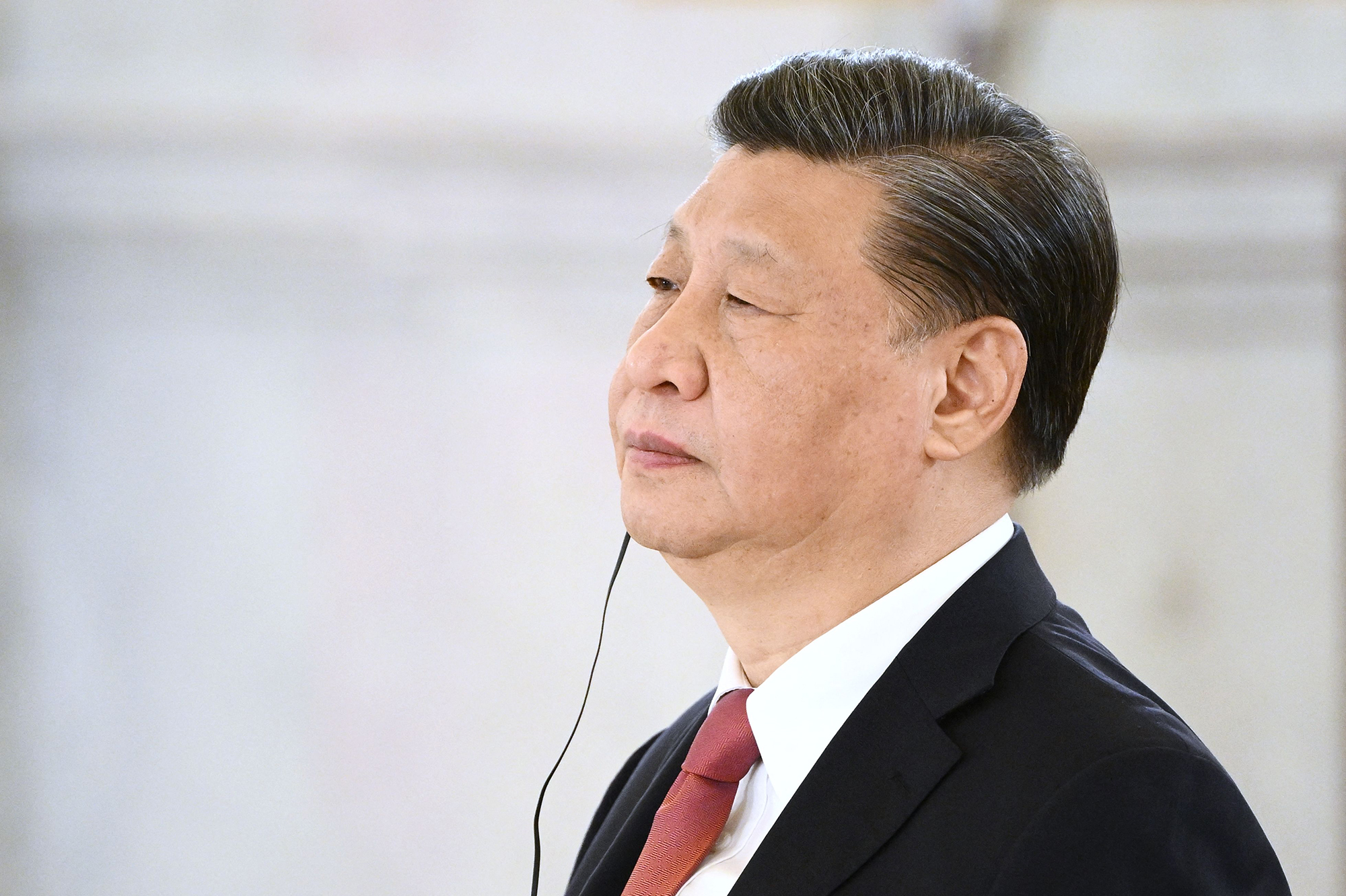
Photo: Xi Jinping is unlikely to press Putin only at Trump's behest (Getty Images)
It's unclear whether Trump managed to contact Xi Jinping during those discussions. Most likely, he did, and Xi was asked to persuade Putin to end the war. This is supported by the unexpected meeting between Xi and Russia’s Security Council Deputy Chair Dmitry Medvedev on December 12. At that time, there were no pressing issues between Moscow and Beijing, suggesting they may have discussed Trump's request.
However, it seems that Xi either failed to convince Putin or didn’t attempt to. Putin continues to insist on his readiness to cease fire and start negotiations based on “realities on the ground,” i.e., on Ukraine's consent to Russian control over Donetsk, Luhansk, Zaporizhzhia, and Kherson regions. The Ukrainian side rejects this ultimatum.
China may view the Ukraine issue as a potential bargaining chip to maintain the status quo in relations with the US. Meanwhile, Putin appears open to dialogue with Trump’s administration. If Xi played an important role in ending the war, he could expect concessions from Washington in return.
Yesterday Trump's address was just a call, an abstract statement that does not oblige anyone to take any specific political action. And there is no answer to the key question: how will China and the United States organize cooperation to end Russia's war against Ukraine?
According to analyst Volodymyr Fesenko, Beijing is unlikely to rush into action. At best, China may step up its rhetoric on peace talks.
“But it won’t pressure Putin into ending the war. Why, because Trump wants it? China will likely wait for Trump to fail and then potentially take on a more significant role in negotiations. That’s a highly probable scenario,” Fesenko noted.
China might become involved in defining the format and participants of peace talks, beyond Ukraine, Russia, and the US. However, as long as there are no clear statements on whether China is ready to participate or not, it is difficult to assess how effective its contribution will be.
"It’s possible that China could eventually be invited to join the negotiation process. But expecting China to pressure Russia in exchange for something from the US seems unlikely. It’s unclear how Xi and Trump could coordinate efforts to end the conflict. But if both show a willingness to influence the situation, that's an interesting scenario. For now, it looks utopian. They can try it, but we should not expect any results for Ukraine in the near future," Fesenko added.
The only situation that can force China to demand that Putin stop the war is when it not only cannot make money from the war, but also loses money, contracts, and technology, Kraiev believes.
“The US and its partners would need to ensure that tacit approval of Russia's aggression becomes too expensive for China. If Beijing sees its assets at risk, that’s when it might act,” he explained.
Kraiev also doubts that the US could achieve an end to the war within the 100 days outlined in Western media reports. “If they even manage to develop a strategy in that time, it would already be a significant achievement,” he concluded.
Sources: statements by US President Donald Trump, Ukrainian President Volodymyr Zelenskyy, CNN and Nikkei Asia materials, comments by Volodymyr Fesenko, Head of the Penta Center for Applied Political Studies, and Oleksandr Kraiev, an expert at the Foreign Policy Council Ukrainian Prism.

